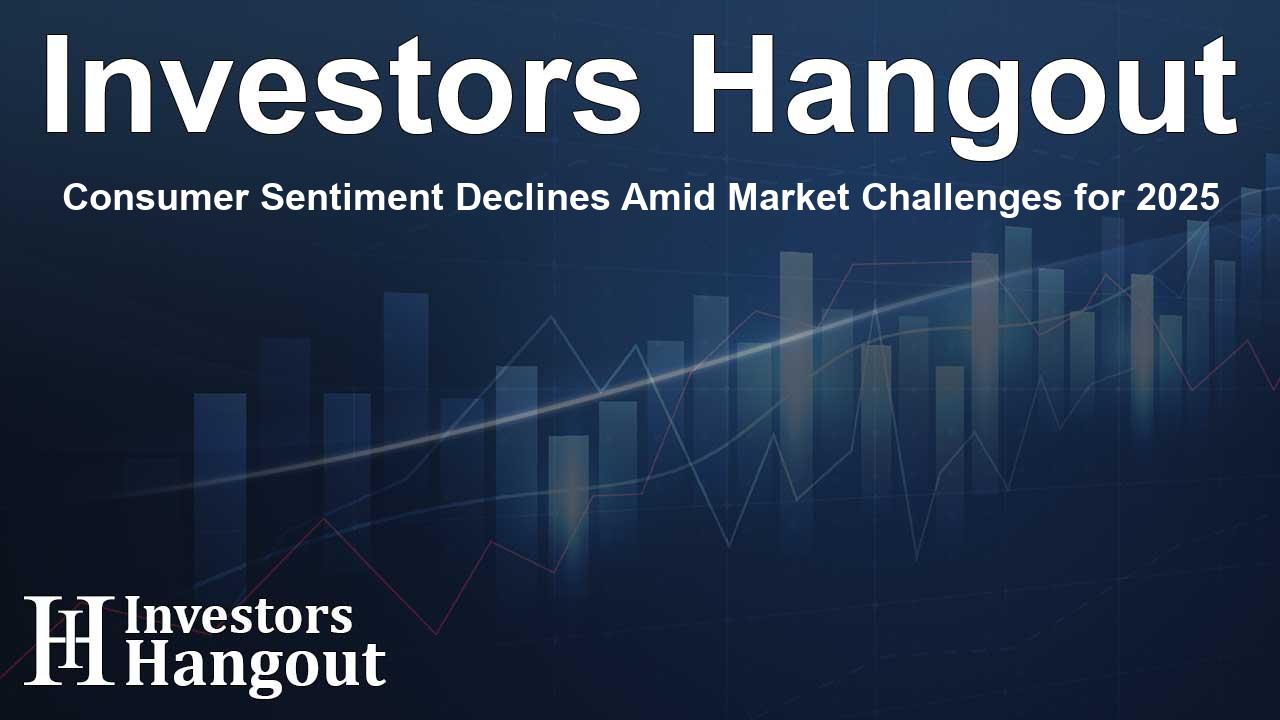Consumer Sentiment Declines Amid Market Challenges for 2025

Consumer Sentiment Takes a Hit Amid Economic Turbulence
The recent fluctuations in the equity markets have shaken the confidence of upper-income American consumers regarding their future spending. According to new data emerged from analyses, consumers in this demographic are facing significant hurdles that threaten to impact their financial health. This shift raises concerns over the potential contraction of the economy, particularly with upper-income consumers who hold a strong influence on discretionary spending.
Understanding the Decline in Consumer Outlook
The outlook score for upper-income consumers recently dropped by a staggering 11.8 points, settling at 88.6. This reduction marks a significant downturn, only surpassed by the dramatic shifts seen at the onset of economic disruptions linked to the pandemic. The overall score of the Consumer Health Index also experienced a decline, falling 5.3 points to 94.6, underscoring the prevalent mood of uncertainty among consumers across varying income levels.
Impact of Market Volatility on Spending
The downturn in consumer outlook is strongly correlated with the upheaval in the stock market, which has heavily impacted the investment portfolios of upper-income Americans. As these investment assets constitute a primary source of wealth, the negative sentiment around equity markets is expected to translate into reduced spending plans, making growth prospects appear bleak for the US economy.
Counter Trends in Spending Intentions
Interestingly, despite the significant drop in the outlook score, upper-income consumers reported a rise in their spending intentions by 2.1 points this month. While this might typically indicate consumer strength, analysts suggest this trend could reflect a strategy among upper-income individuals to expedite their purchases in anticipation of potential tariff hikes. This behavior indicates that immediate spending may not shield the economy from longer-term consequences stemming from a negative economic outlook.
Mid and Lower-Income Consumers: Diverging Perspectives
Amid these economic shifts, middle-income consumers are responding differently, having slightly lowered their outlook gauge by 0.2 points. This cautious approach appears to stem from their reliance on the housing market rather than equity market performance. Furthermore, there has been a notable increase in the saving intentions of middle-income earners, accompanied by a reduction in their inclination to use debt, signaling a more conservative approach in light of the overall economic instability.
Strength in Lower-Income Consumer Outlook
Interestingly, lower-income consumers continue to display resilience. Their outlook readings have shown an upward trend for the last six months, reflecting strength in the job market. However, experts warn that this positivity could wane if the current economic volatility leads to job market deterioration. Thus, while they exhibit confidence today, the future remains uncertain.
The Road Ahead for Consumer Spending
The implications of these trends echo deeply for businesses and the broader economy. With upper-income consumers adopting a defensive stance, businesses targeting this demographic may need to adjust their strategies accordingly. As the economic landscape evolves, understanding consumer sentiment will be crucial for navigating challenges ahead, particularly in sectors reliant on discretionary spending.
Frequently Asked Questions
What is the current outlook for upper-income consumers?
As of now, the outlook score for upper-income consumers has seen an alarming decline, indicating a drop of 11.8 points recently.
What factors are influencing consumer spending intentions?
The fluctuations in the stock market, particularly related to tariff impacts, have significantly influenced consumer spending intentions, especially among upper-income groups.
How are middle-income consumers reacting to recent changes?
Middle-income consumers display caution, with a slightly decreased outlook and increased saving intentions, indicating a more defensive financial approach.
What does the future hold for the economy?
With a potential contraction in consumer spending due to lowered confidence, the overall economic growth may be at risk in the near term.
Are lower-income consumers feeling the impact of economic changes?
Contrary to higher income groups, lower-income consumers currently exhibit strength, but this could quickly change with job market fluctuations.
About The Author
Contact Olivia Taylor privately here. Or send an email with ATTN: Olivia Taylor as the subject to contact@investorshangout.com.
About Investors Hangout
Investors Hangout is a leading online stock forum for financial discussion and learning, offering a wide range of free tools and resources. It draws in traders of all levels, who exchange market knowledge, investigate trading tactics, and keep an eye on industry developments in real time. Featuring financial articles, stock message boards, quotes, charts, company profiles, and live news updates. Through cooperative learning and a wealth of informational resources, it helps users from novices creating their first portfolios to experts honing their techniques. Join Investors Hangout today: https://investorshangout.com/
The content of this article is based on factual, publicly available information and does not represent legal, financial, or investment advice. Investors Hangout does not offer financial advice, and the author is not a licensed financial advisor. Consult a qualified advisor before making any financial or investment decisions based on this article. This article should not be considered advice to purchase, sell, or hold any securities or other investments. If any of the material provided here is inaccurate, please contact us for corrections.
